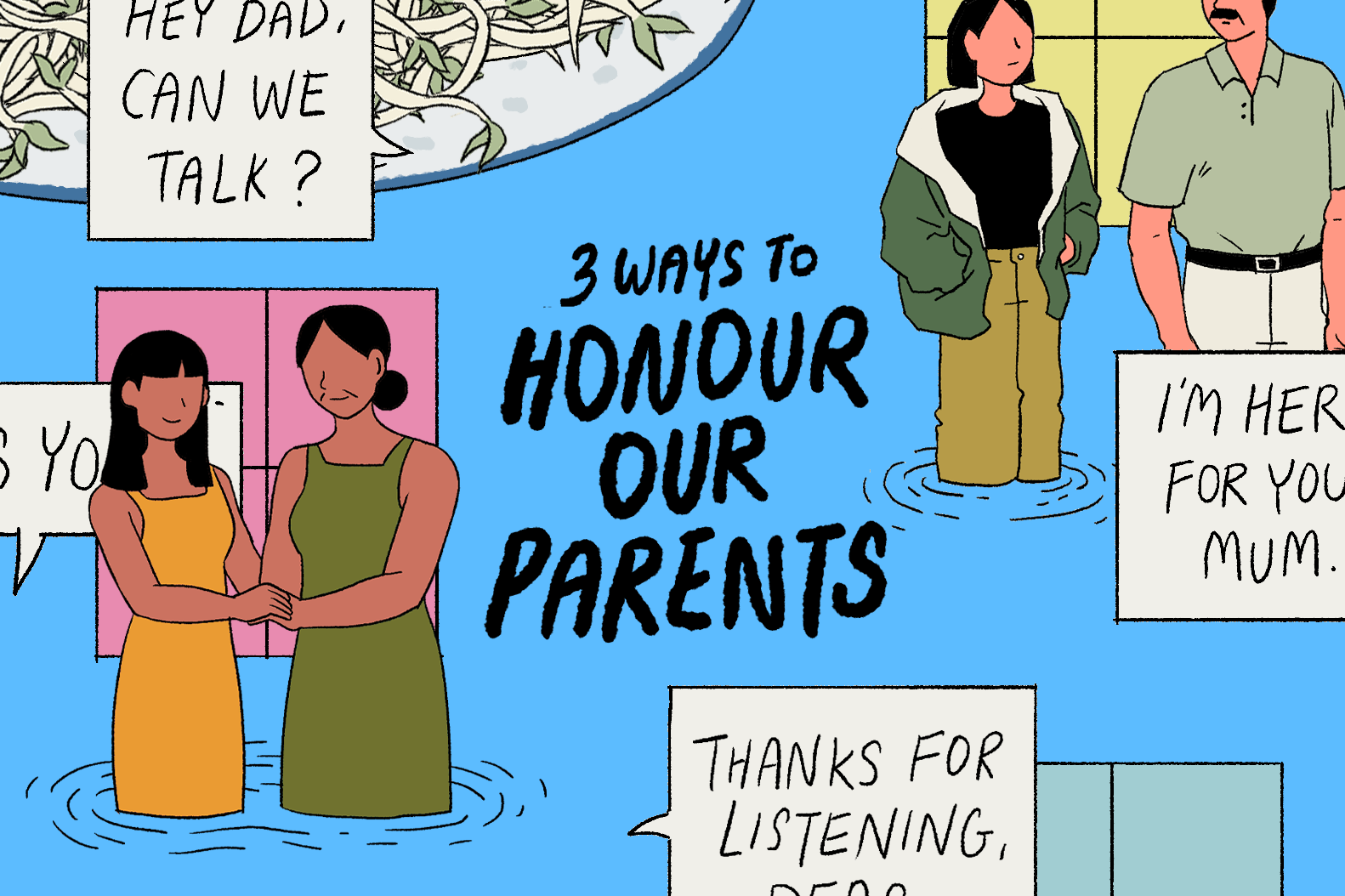Think of your three closest friends.
Now think about the last time you spoke to each one of them.
Next, try to recall what makes them come alive – their wildest dreams and greatest fears.
If you’re a girl, chances are this exercise has brought warmth to your heart. You’ve met these dear friends fairly recently, in person or via Skype. You don’t have many opportunities to meet, but you make time.
Over a cuppa, you pick up right where you left off.
If you’re a guy, however, you’re probably feeling apprehensive. (Unless, of course we’re talking about the girl you’re wooing – but that’s a story for another day).
But let’s be honest: It’s a false bromance. You’ve had deeper conversations with Siri.
Men do pretty well keeping friendships through school and National Service, but things fall apart quickly by the time we’re “out in the real world”. We bump into old friends on the street, or “like” our buddies’ stuff on Facebook. We exchange the usual niceties, bro-fist and make plans.
But let’s be honest: It’s a false bromance. You’ve had deeper conversations with Siri.
When we say our goodbyes, we’re already half-resigned to the fact that our plans to “relive the glory days” by hiking the Himalayas, chasing the Northern Lights or cave diving the Mexican cenotes will probably never materialise. All that mountaineering gear you bought on impulse a year ago will slowly corrode till one day you decide – with kids on lap and bills to pay – to Carousell them for good.
My apologies for making you feel like a loser. But it’s a real issue that needs to be discussed: Loneliness is a poison.
LOVE OR DIE
Society’s finally started talking about depression, but nobody wants to admit they’re Mr Lonely. German psychiatrist Frieda Fromm-Reichmann proposed that loneliness – emotional isolation – lies at the heart of all mental illness.
More depressingly, it’s merely the beginning of a long list of physical maladies. The psychological effect of prolonged isolation compromises one’s physical health as much as long-term smoking. The chronically lonely face are prone to a myriad of health problems: Obesity, Alzheimer’s, cardiovascular disease, diabetes, high blood pressure, neurodegenerative diseases and even cancer – a 26 to 32 per cent increased risk of premature death.
And – the irony – if you happen to be feeling lonely, you’re not alone. One in three people aged 45 and above suffer from chronic loneliness (up from one in five a decade before). Many of these are married.
The irony: If you happen to be feeling lonely, you’re not alone.
We’ve got an epidemic on our hands.
With the flame of bromance flickering, men also seem to fare far worse in mid-life, with suicide rates of male Baby Boomers disproportionately higher (27.3 out of 100,000) than their female counterparts (8.1) in the US.
A CULTURE OF ISOLATION
The ugly admission is we – men and women alike – are just too tired and busy for our buddies.
Somehow, women are often slightly better at maintaining trusted relationships, while men let their outdated relationships – like those old hiking boots – lapse into ruin.
We’re good at making “friends” wherever, but few, if any, of these go deeper than a hi/bye or follow us into the next season. A quick scroll through your abandoned WhatsApp chats should confirm this.
So many men live in a loneliness trap where big dreams are crushed by the mundane responsibilities of life. Not that women don’t dream big or are more irresponsible, but men are more likely to fall into isolation walking in the tension between ideal and reality.
“Loneliness is the want of intimacy,” said Soren Kierkegaard. And it seems our chronic lack of intimacy is caused by culture: Capitalism and meritocracy.
The Singapore dream. Efficiency and competitiveness at the cost of empathy. Social media making us “more connected” but “more lonely” than ever before.
The endless feed of spam that uses every bit of our mental faculty while failing to nourish our souls. Romantic ideals that downplay the importance of meaningful non-romantic relationships. The valid but often abused idea of “boundaries”.
Studies on identical twins even suggest a genetic predisposition to loneliness – nature – while biologists have discovered that our loneliness levels later in life are affected by the conditions of our formative years – nurture.
There are reasons to support the gender-difference too: The stigma of emotional men, the side-by-side nature of male friendships (compared to face-to-face in women) premised on shared interests and goals, male ambition and “alpha” pride.
From school, to church, to office, you get the feeling that males only thrive in communities with visionary leadership, room for ruckus and high stakes. Apart from these, men tend to become wandering lone wolves.
I think of the exodus of men from church in droves. And while there are things the church can do to mitigate the trend, the reality is that the modern man is terrible at making real friends, and the Church so happens to be a community of such friends.
It’s time men learnt to make real friends.
IT’S NOT GOOD FOR MAN (AND WOMAN) TO BE ALONE
The solution to loneliness is human connection. And while this may come in the form of romantic love in marriage, it doesn’t necessarily have to.
Men and women are tied in other intimate ways (1 Corinthians 11:11), where we learn to treat one another as brothers and sisters. Men also need meaningful male relationships for brotherhood, discipleship, role models, prayer and accountability. We all could use a bro, and the Bible is full of bromance.
The cycle of hopeless, desperate isolation finds its solution in communities of love made possible by Jesus.
But of all the stories of bromance, one stands out. Thanks to Jesus, we have the glorious privilege of knowing the King of Kings, Lord of Lords – Bro of Bros, if you will.
Mere friendship falls painfully short of God’s agape because they are at best superficial and at worst completely false.
Bluntly put, they are self-serving: We get a kick out of our friends. We use them as punching bags, self-help guides or stuffed bears. Some friendships are clever disguises for romantic pursuits. Even in marriage, many still feel alone because they don’t understand God’s perfect love.
WELCOME TO THE BODY OF CHRIST, BRO
The key to restoring our connection with humans is in reviving our love: First with God, then with our fellow man.
In the case of the two greatest commandments given by God and reiterated by Jesus in Matthew 22:36-40, one cannot exist without the other: We love God by loving people; we learn to love people by loving God. And – something most of us miss – we must allow others to love us by learning to receive love graciously in community.
Consider the three friends you named earlier. In spite of life’s many frustrating challenges, our limited energy and time, God gives you the ability to love them because He loves you. In fact, He calls you to love the different, the lost, your enemies and the unlovable.
This is the Church: Not a building, but relationships built on the love of Jesus.
As our elderly are packed into nursing homes run by foreign-language staff, factory jobs are gradually replaced by mechanised artificial intelligence, screens continue to “facilitate” personal and professional interactions, and the young search in vain for a meaningful existence, the cycle of hopeless, desperate isolation finds its solution in communities of love made possible by Jesus.
Such love is both our witness (John 17:20-21) and our saving grace (John 14:18-21). It is literally moving from death to life.
Bros and sisters, treat every little symptom of your loneliness if you must – your life depends on it. But understand that we fight against the laws of entropy unless we are supernaturally revived. If you consider yourself lonely, look first to Jesus. Ask Him to fill you with His love. Then go and do likewise. Be the church.
It might start with a humble bromance of three, but in time it’ll grow vastly beyond what you can ask or imagine. Big Bro’s got your back.









